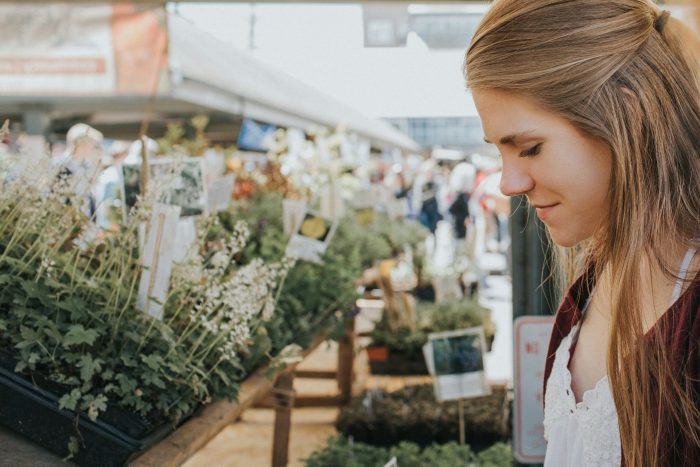{*Did you know you can write on Elephant? Here’s how—big changes: How to Write & Make Money or at least Be of Benefit on Elephant. ~ Waylon}
~
If we care about our health, the health our children, and the health of our planet, we need to learn the basics about a healthy lifestyle, and yet sadly this isn’t taught in schools or by parents.
I talk to parents and teachers alike every day and realize how little they know about clean everyday living, which by the way, was something I too had to learn. I am a first generation American who grew up gardening, sewing, cooking, and refinishing furniture as a necessity. About 10 years ago, I wanted to understand what was in my “green” laundry detergent. I learned a great deal along the way.
Have you or a loved one had cancer or other serious health issues, and have you taken a closer look at the everyday toxins in your life? I have some specific and practical tips for you! Some are easy others are harder.
I believe most of us want to live a nontoxic lifestyle. To do that either we use only what is natural and grows from the ground—think homesteading—or we need to learn a good deal about the products we use from food to clothing to my specialty: home goods, cleaning, and personal care products, and we should trust almost no one. As the owner of an eco-friendly, zero waste, refill, and home goods shop that sells cleaning products, personal care, and a huge selection of food storage containers, it matters. My focus is entirely on offering better choices. We try and meet people where they are. So wherever you are on this journey, there is only one person protecting you. That is, of course, you.
Eating right and exercise are what we are taught, but we never really learn how. Think about the many diets we hear about or try. Which is best? Does organic matter? And even if we could eat right, every time we bring toxic products to our skin, hair, and food, we are harming ourselves and the planet too. Most of us simply assume that if it is sold in the grocery it must be safe or that the amount of exposure is so small. But small exposure matters and can add up. For example, one leading laundry detergent lists 82 chemicals on their website. If we can’t get pharmaceuticals out of our drinking water, how can we possibly get the 82 chemicals out of our laundry water?
And then there is the detergent residue on our clothing, which touches our skin, our largest organ. We sleep in undies and pajamas and on sheets and after showering we dry with fluffy towels. We wear our clothes all day and sweat in workout clothes. We use personal care and beauty products that are made with so many toxic chemicals it’s scary. We really can do better, and when (not if) we do, everyone benefits, including the planet and the animals around us, from our own pets to the birds and bees in nature. We are after all, nature.
When everyday toxins are in all our products from laundry detergent to shampoo, makeup and sunscreen, and in the plastic containers we all use to store food and drink, then the combined exposure can build up to a toxic load and now we may have a problem. Did you know that with each year from 1995-2020 cancer rates have risen in young adults by 1-2 percent in each of those years according to the American Cancer Society (ACS) annual reports and as reported by Yale Medicine? Should we talk about infertility, gut health, allergens, diabetes, ADHD, and other illnesses?
Hopefully we have your attention. Let me jump right in and share my top tips with brief explanation.
1. Buy less plastic, which is always toxic. Only 6 percent of plastic is recycled in the United States and all the major recycling facilities burn that recycled plastic for energy according to a National Resources Defense Fund Report. Yes, that is allowed to be called “recycling”.
2. Store and serve food and drink in glass, ceramic, or stainless. While your refillable water bottle is a great place to start, consider that all milk, juice, and drink cartons and cans are lined in plastic. Plastic sheds microplastics that we ingest and off gasses or leaches other toxins into our food and drink. Shop the periphery of the grocery to avoid processed foods, cook more, and aim for as much organic as you can find and afford. Local, organic farmers offer the best options. Besides that they care more and avoid most pesticides; another reason is that they likely don’t use petroleum “wax” to coat their produce.
3. Never heat plastics in the microwave, or dishwasher or leave a plastic bottle in a hot car. Did you know that “microwave safe” just means it won’t melt in the microwave?
4. Don’t eat microwave popcorn for so many reasons, but mostly, the bags are coated in forever chemicals, or PFAS. (PFAs are often referred to as a forever chemical as these linger in humans, animals, and water for a long time.)
5. BPA (Bisphenol A) Free or PFAs Free, means almost nothing. BPA, a hormone disruptor is replaced with other bisphenols that may be even less safe. There are thousands of forever chemicals, so free of one gives us no comfort, as it is just replaced with another.
6. Don’t touch heat generated paper such as register receipts, shipping labels, and if you do, wear a silicone finger or glove and never use sanitizer, which will speed up the absorption of the BPA or bisphenols. And the BPA levels in this paper is up to 250-times what you might find in a can of peas.
7. Consider the ingredients in your laundry detergent and all your household cleaners. We have several brands we trust including our Haus brand (three ingredients). Important note: don’t use laundry strips or pods, all which contain PVA or polyvinyl alcohol, a plastic. PVA dissolves. But I ask you: when salt dissolves in water, it tastes just like salt water, so when plastic dissolves in water, we still have plastic water. Municipalities cannot filter this out at all or certainly not at scale.
8. Beware of Greenwashing, the practice of making products seem green/eco/safe, when they really are not. It is everywhere. I repeat, everywhere.
9. Consider how all your beauty care products are rated. Try a source like EWG.org. or the Yuka Ap.
10. When making bigger purchases like clothing, carpeting, siding for your house, a new car, a new mattress, do some research. Buy less and make better choices. When thrifting, prioritize natural materials whenever possible.
Some of this may be scary. Try committing to just one change this week and then another. Remember, small and steady changes win—be the turtle not the hare. This isn’t something that costs more money; in fact, it saves lots of money over time.
Share this article and print it and make a vision board.
~
{Please consider Boosting our authors’ articles in their first week to help them win Elephant’s Ecosystem so they can get paid and write more.}












Read 17 comments and reply